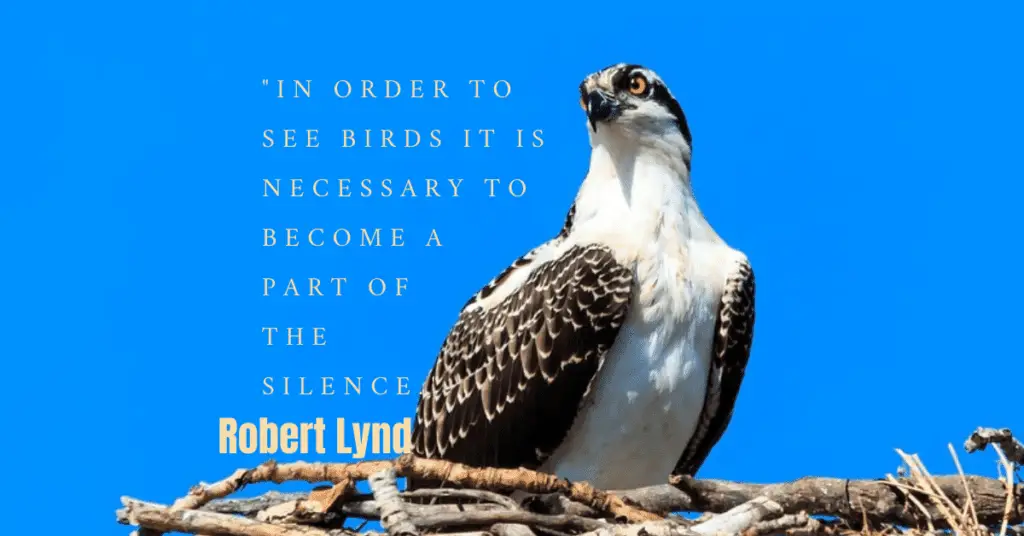“In order to see birds it is necessary to become a part of the silence.”
Robert Lynd

Originally published in the October 2020 issue of Lakeside Living magazine. Click here for the magazine issue.
The last time I experienced true silence, it wasn’t silent at all. And it lasted all of a few seconds.
It was late summer, and the nearness of Fall tinged the early morning air with a whiff of coolness. Gliding alone across the lake at dawn, I could hear birds noisily calling each other in the trees while the lake waters lapped the boat’s sides.
It’s when I saw the osprey that everything went truly silent. Perched in solemn stillness on the tip of a blunted branch, the fish-hawk calmly gazed towards the water, looking like a wise old fisherman mentally preparing for the day.
Curving black talons gripped the branch, resembling the crane claw machine at an arcade that kids clumsily maneuver to snag a stuffed animal. The glaring exception being that these rounded claws are lethally accurate.
My eyes moved upward to admire the oiled feathers gleaming in the sun. But when I shifted my gaze to the piercing eyes, I was mesmerized by a pair of glowing, golden orbs the color of the sun setting on a dark horizon. I remembered reading that the eyes of an osprey could penetrate the glare of the water’s surface, allowing them to see the fish swimming beneath. That even when they dive feet first from 30 – 100 feet up, a semi-transparent ice-blue third eyelid slides into place, protecting their eyes while also giving them the ability to see underwater.
The fish really don’t stand a chance.
In medieval times, people believed that ospreys had the power to mesmerize a fish. It was the only reasonable explanation for why the fish seemed to put up their fins in surrender.
These thoughts flickered through my mind before I realized I was holding my breath. It’s involuntary, I think, to hold your breath in perfect stillness when you catch a rare glimpse of an animal in nature. You don’t move, hoping it doesn’t either. We try to freeze the moment in time, as if the slightest shift of air might be too much, bringing it all to an end.
In a quick flash of feathers, the moment was over. It was as if someone had turned the sound back on. Birds twittered everywhere, the water splashed, my stomach growled, and I was a little closer to understanding what it means to become a part of the silence.
Related Posts:
